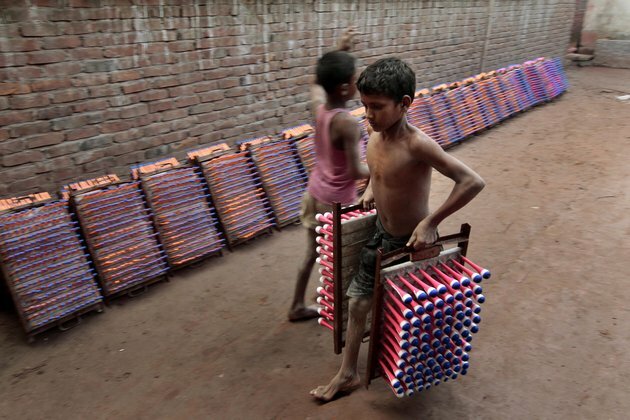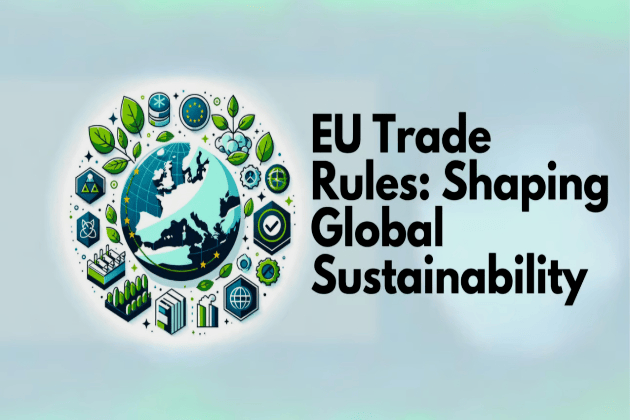The end of dangerous working conditions starts with informed consumers
The Conversation
07 Nov 2019, 04:01 GMT+10

Halloween has just passed and your kids are probably still polishing off this year's candy haul. As recently reported in the Washington Post, there's a good chance that some of those chocolate treats were made using child labour. Would knowing that change your mind about purchasing that product?
What about reports of beatings and abuse of Bangladeshi textile workers sewing clothes destined for our closets? Should companies that produce goods responsibly be identified? How can consumers make the right choices?
Work causes more than 2.1 million deaths globally every year, whether it's due to the child labour used in the production of cacao or electronics, or contract food preparation workers dying on the job in Canada. The costs of work-related injuries account for about four per cent of the total world GDP.
In fact, studies have shown that the costs of workplace injuries are on par with those of all cancers combined. A survey of more than 5,000 workers in Quebec has found that one in five are suffering from work-related musculoskeletal pain, particularly shoulder and back pain, with women being affected in greater numbers than men.
Workplace injuries also erode companies' profits. And this doesn't begin to address the cost of mental health issues associated with work. Working environments should not cause pain and injury in employees - it's bad for business.
Consumers also to blame
Bad work environments, and their associated burnout, injury, pain and fatalities, plague workplaces around the world. While it's tempting to blame companies for egregious working situations, consumers should also look in the mirror.
Companies will provide you with goods according to your demands. If you don't demand products made under good working conditions, then the all-too-common status quo - dangerous, dirty and demeaning conditions - is what you are supporting with your purchases.
Our research has shown that consumers, when asked, would prefer goods made in favourable working environments. When we interviewed millennials, they expressed a willingness to pay 17.5 per cent more on a $100 product for goods made under healthy conditions than those that are not. The main barrier noted in this research is access to trustworthy information about the working environments in production.
When we examined how 100 companies listed on the Toronto Stock Exchange are currently reporting on their working environments, we find almost 900 different indicators reported, with almost no organizations using the same indicators in their reports. This makes it virtually impossible for a responsible consumer, or a company seeking a responsible supplier, to compare practices and make informed choices. A standard for reporting is needed.
Read more: Governments know work and living conditions can kill us -- it's time to act
Recently the Canadian Standards Association has begun to lay the groundwork needed to create a standard providing advice and guidance to help companies report on their working environments in a consistent and comparable manner.
When you consider the complexity of characterizing all of the physical, mental, environmental and social dimensions of a workplace, it's clear that creating a consistent reporting approach remains a challenge. Further work is needed.
Demonizing not enough
Demonizing companies with poor working conditions and operational practices is not enough. We also need to support companies with good track records and work to foster favourable environments in our own workplaces. For companies trying to communicate the quality of their workplaces, there is a need for clear guidance of what and how to report.
Without good reporting, consumers won't trust companies, and the potential for consumers to become socially responsible disappears. Furthermore, a reporting standard would give companies with stellar workplaces a credible means to demonstrate their leadership to clients and customers.
There is a growing awareness that we, as consumers, can influence broad issues like climate change just by making smarter choices about where we spend our money. This is equally true for the working conditions of the people who produce our food and manufacture our products.
But we have not yet reached the tipping point of public opinion - and employees around the world are still literally dying for a paycheque.
Work shouldn't hurt. The food we eat and the products we use should not be made in pain or contribute to human misery. While companies hold some blame, so do consumers who wilfully avoid dealing with the consequences of their purchasing decisions.
Access to reliable information on working conditions needs standardized reporting, and Canada is well-positioned to show leadership on this issue.
Without clear reporting, how are we to know about the conditions our food and goods are made in? Let's make sure the chocolate we buy leaves no bitter aftertaste.
[ You're smart and curious about the world. So are The Conversation's authors and editors. You can read us daily by subscribing to our newsletter. ]
Authors: Patrick Neumann - Professor, Department of Mechanical and Industrial Engineering, Ryerson University | Cory Searcy - Professor & Interim Vice-Provost and Dean of Graduate Studies, Ryerson University 
 Share
Share
 Tweet
Tweet
 Share
Share
 Flip
Flip
 Email
Email
Watch latest videos
Subscribe and Follow
Get a daily dose of Scandinavia Times news through our daily email, its complimentary and keeps you fully up to date with world and business news as well.
News RELEASES
Publish news of your business, community or sports group, personnel appointments, major event and more by submitting a news release to Scandinavia Times.
More InformationEurope
SectionDublin ranked 2nd most expensive for apartment construction in Europe
DUBLIN, Ireland: Dublin has been ranked as the second most expensive city for apartment construction among ten major European locations,...
Major European summit planned in Ireland next year
DUBLIN, Ireland: Ireland is positioning itself to host a high-profile gathering of European leaders next year, with Tanaiste Simon...
EC to ease sustainability rules to boost business competitiveness
BRUSSELS/LONDON: The European Commission is preparing to ease sustainability reporting requirements for businesses as part of a broader...
Ireland’s average rents went up by 5.7% in 2024, report says
DUBLIN, Ireland: Ireland's rental market continued to tighten in 2024, with average rents rising by 5.7 percent over the year, according...
EU pushes for US gas, renewables to cut Russian Reliance by 2027
BRUSSELS, Belgium: The European Union is ramping up efforts to secure alternative gas supplies and accelerate its shift to renewable...
Ireland supermarket honors 1999 pre-euro voucher
DUBLIN, Ireland: A supermarket in Kildare made headlines after honoring a 5-pound voucher issued in 1999, long before Ireland adopted...
International
SectionPoland to continue covering Ukraine’s Starlink costs, says deputy PM
WARSAW, Poland: Deputy Prime Minister Krzysztof Gawkowski confirmed over the weekend that Poland has been covering the cost of Ukraine's...
Opinion - Israel's government exploited hostages
Israel sustained the West's support for its slaughter in Gaza for 15 months only through an intensive campaign of lies. It invented...
Pentagon to cut 5,400 jobs amid Trump’s federal workforce reduction
WASHINGTON, D.C.: The Pentagon announced this week that it will cut 5,400 jobs as part of President Donald Trump's plan to shrink the...
Newsom urges Congress for $40 Billion to aid LA wildfire recovery
SACRAMENTO, California: California Governor Gavin Newsom is urging Congress to approve nearly US$40 billion in federal assistance to...
USDA scholarship for underserved students from Black colleges on hold
WASHINGTON, D.C.: A U.S. government scholarship program designed to help students from underserved and rural areas attend historically...
US oil tariff may force foreign producers to pay $10 billion annually
WASHINGTON, D.C.: A proposed 10 percent U.S. tariff on oil imports could deal a US$10 billion annual blow to foreign producers, particularly...













